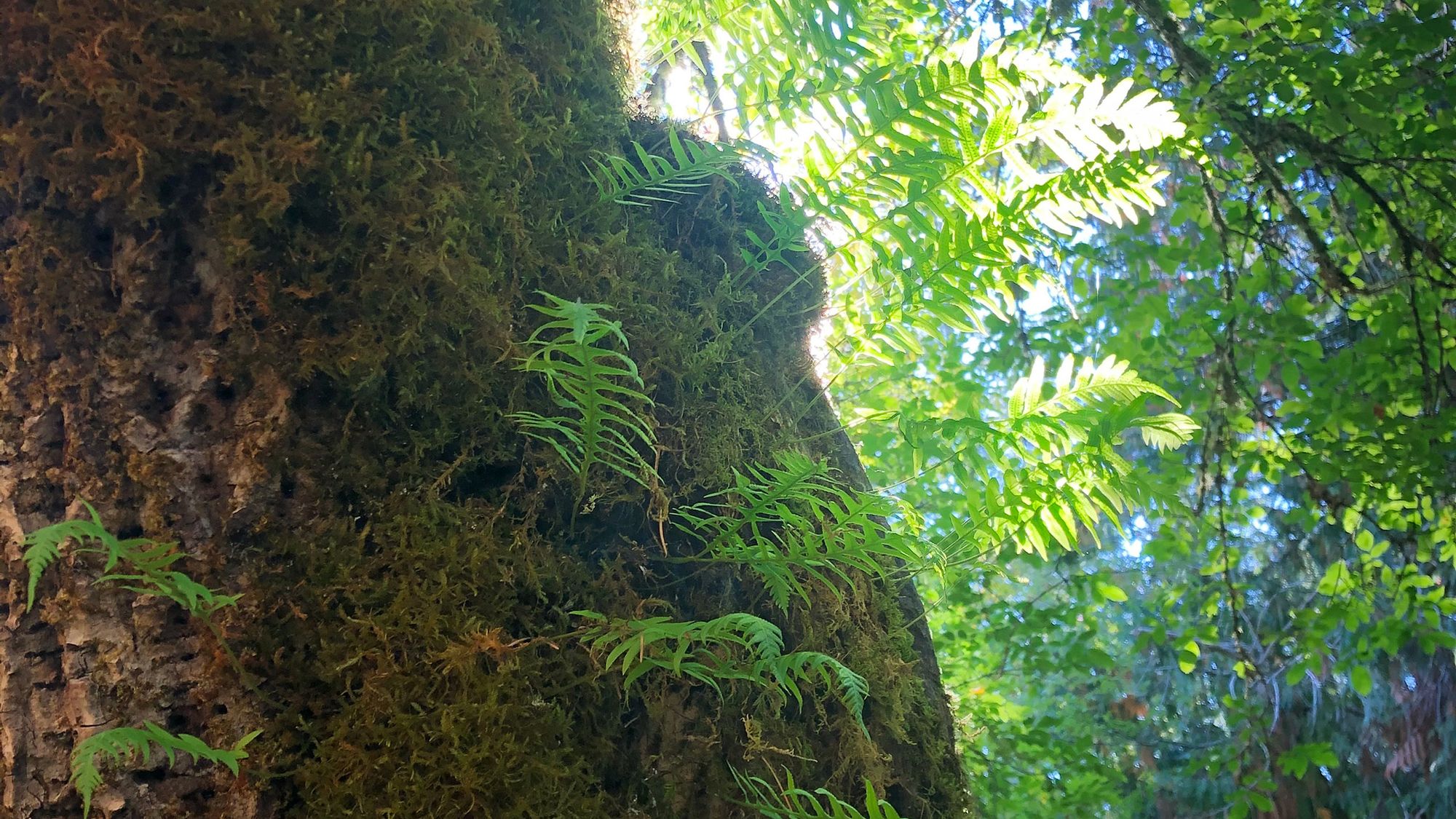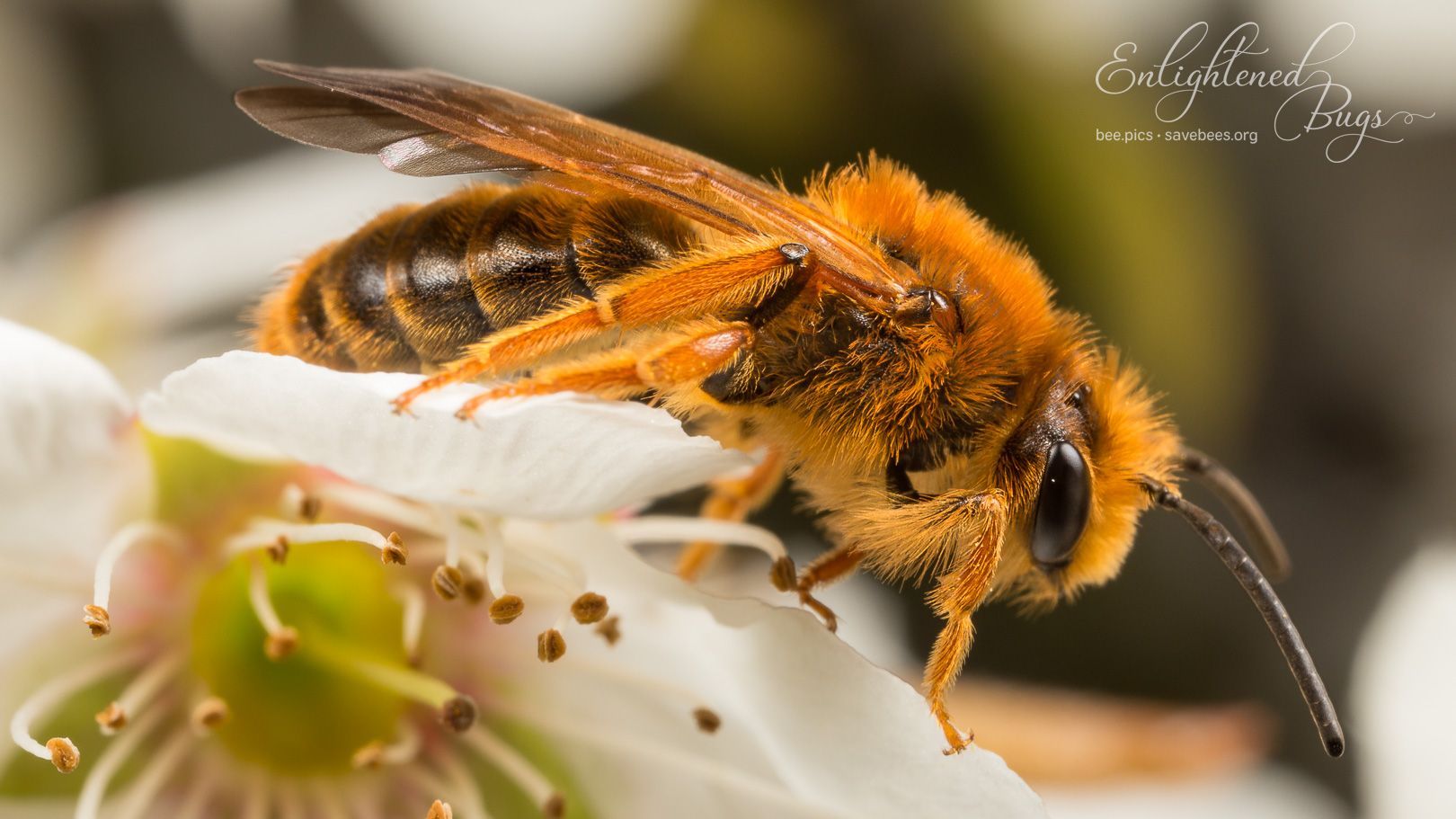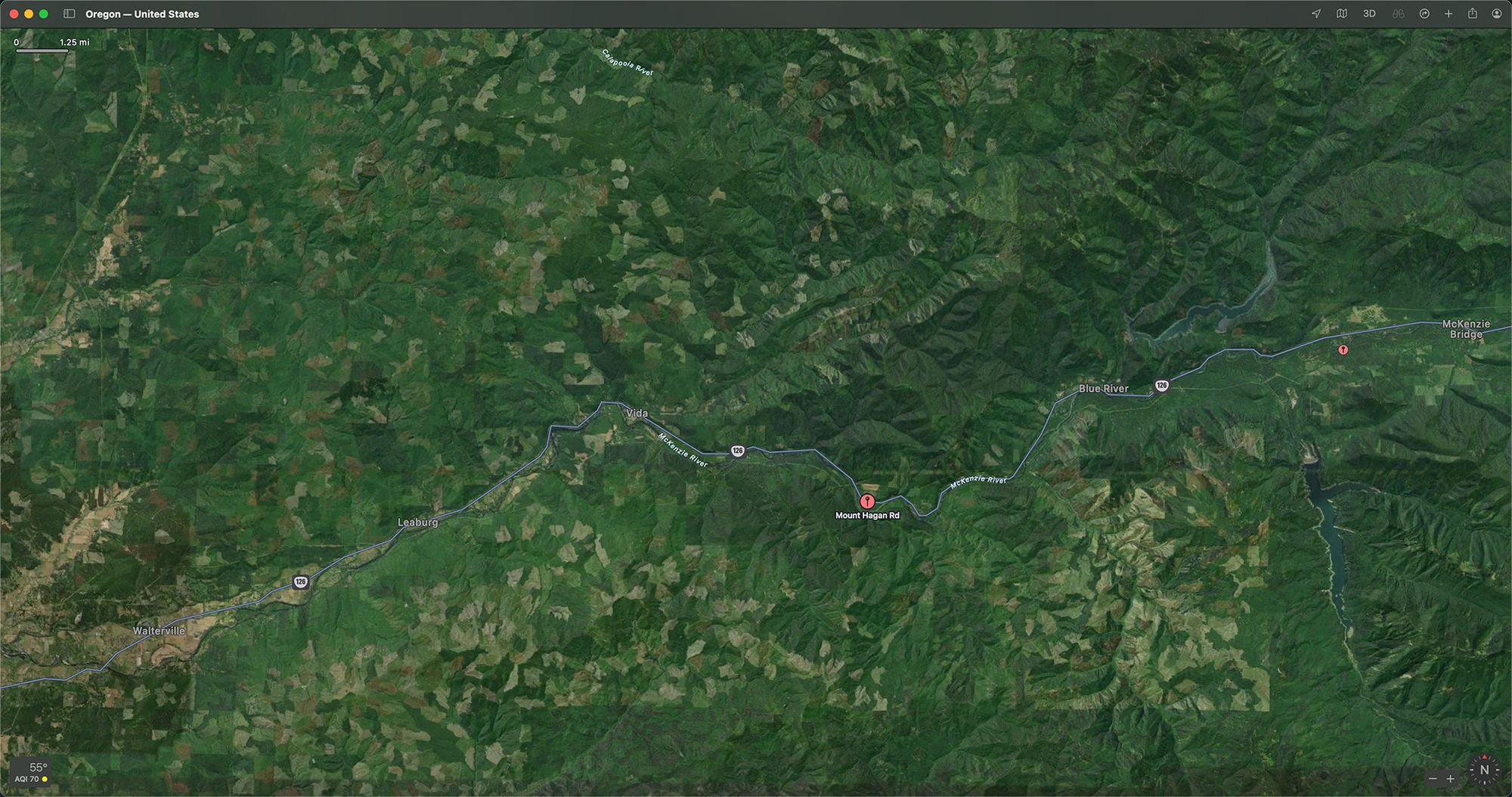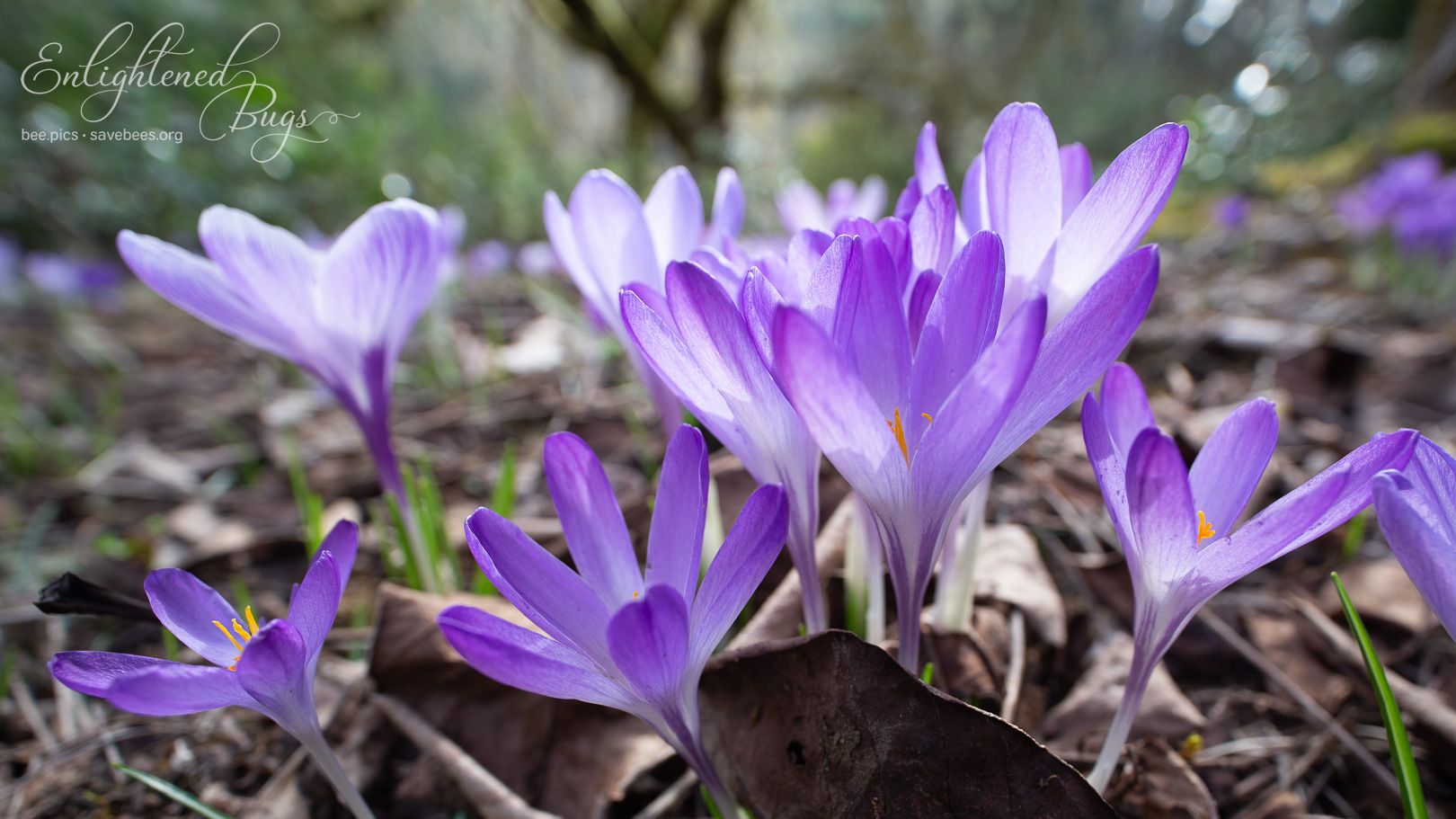Wildfire

(This was written two years after the Labor Day 2020 wildfire in my part of Oregon. Doubtless it was written and rewritten countless times, as one rewrites all one's own stories.)
Every breath of air seemed to hold a fullness. Wandering the forest paths, damp each morning... ferns nestled happily, some clinging to the sides of trees, others tucked into the forest floor. Thick beds of moss clambering over long-fallen logs, up the bark of still living trees. Millipedes scurrying amidst the undergrowth, their orange-red edges glinting brightly, warning of tiny puffs of cyanide if troubled. Each spring, forest ephemerals... tiny flowers carpeting the forest floor, their pearly petals shot with pink streaks, a subtle iridescence sparkling in beams of sunlight. An exuberance of plant life in this temperate rainforest. Such a richness of soil, its scents wafting in the air.
It felt like late summer, though September (2020) had already encroached. The air was heavy with the sound of critters, be it the buzzing of any of a multitude and diversity of bees in the daytime, or the cacophonous chirping chorus that greeted one each evening below the intricately patterned illumination of the Milky Way.
Wildfire was the last thing on my mind, and yet wildfire would that evening transform the McKenzie River Valley. It would be racing towards me as I sat sharing ghost stories around an “LED campfire,” after the electricity (from a small cooperative, after all) lost power. The Holiday Farm Fire (as it was called) would speed along perhaps 20 miles or so within a few hours. With little by way of communications networks, people in the valley would empty out slowly, just ahead of the wildfire, for the most part.
For some, their warning came from being jarred awake by sounds of their cars exploding outdoors. Having been five minutes from going to bed myself, I happened to glance at my phone to see a silent “Potential Spam” call from a town downriver. The cellular tower was still up despite the storm, at least so far. I listened to the message... it mentioned an evacuation, but gave only a specific street of which I’d never heard. I checked a map using my cellular data, but I had trouble finding the location. It seemed it must be elsewhere, not in our area.
It’d been smoky that day for the first time that summer, a wildfire south of us as I recall, so I’d shut all the windows up. Now, I felt more on edge. At that point, I believe an unseen timer starting ticking... at least, so it feels on reflection. By the time that timer expired less than a half hour later, I would be standing in my kitchen for the last time, dazed, unsure why I’d even reentered. As I walked out for the last time onto the back porch, I saw the wildfire coming down the hill out back. It looked like the Eye of Sauron (from Tolkien) descending. A more ominous look I have never seen. All the sky glowed the brightest shade of red.
The windstorm which drove this wildfire so mercilessly had been accompanied by trees falling. We had such windstorms from time to time, but accompanied by rain, always with rain. The late-summer showers hadn’t come this year though. Usually half of August, and most of September, would offer up a good soaking.
The drought. The wind. The logging. I didn’t know about that last one until more recently. More on that to come.
Some people look at the wildland-urban interface as it’s called, and say, look, you shouldn’t be building there. Perhaps. As I’ve learned, “wildland” isn’t quite the right word these days... here what passed for wild to many was more like “managed tree plantations,” for the most part.
The air and the water... the things I always missed the most, whenever I ventured elsewhere. And the bees, of course! As I think smilingly on their multitudes... all manner of bumble bee, as well as tiny bees, mining bees, digger bees, even shimmering blue-green bees. A dazzlingly buzzy world humming there.

Insurance doesn’t cover any of that loss. Nothing can. The loss of that little spot of nature, one beloved and cared for over sixteen years... that is what kept me up each night, unable to sleep, for weeks after the fire. Not the house, not the stuff, even the stuff with all the memories... it was that connection with nature, that breath of air first thing in the morning, stepping outdoors. Life outdoors, teeming and vibrant, buzzing with energy.
I know, I know, by having humans out there at all, we endangered that which we most loved, the very thing of which some of us imagined ourselves such guardians. Without the electrical wires, that wildfire would not have occurred. Although anecdotal, someone upriver said they saw the electrical sparks, saw the first lit tree crown, swaying like a match in the midst of others, buffeted by winds, lighting up all those trees nearby.
But how can one live in civilization these days? Even though rebuilding in the WUI (the wildland-urban interface) is not considered appropriate by some, with good reason? But even if one decides to live elsewhere, insurance only compensates structures... as if man-made structures are all that’s valuable. So how can one rebuild elsewhere? Who wants to buy acres of burned trees, in a valley still so visibly marked by all that a high-intensity wildfire leaves in its wake? What should one even do with that land (will it recover more quickly if untouched, or if helped)?
It is heartbreaking too, to think of rebuilding there (both for how it'd feel to be there again in such a changed place, perhaps more for the thought of adding further human constructs to an area already so "unwilded," one now overtaken by even more development, "landscaping," and the like). Some folks neither rebuild nor relocate permanently, occupying some kind of in-between state as I have done, living ‘temporarily’ until that state itself takes on a permanency. Uncertainty. These are unprecedented times, it is often said.
Living from day to day... that’s another thing that comes from wildfire, and the feeling lasts and lasts. I think back to things in that home that I never used, and laugh sadly at the way I once lived, in many respects. I've found I have no heart for paperwork anymore, it all seems so unimportant, when life itself feels both precious and so fragile.
I miss the place (so much), but what I miss no longer exists. In the meantime, one is asked by one’s insurance company to itemize every last thing one ever had in one’s house. Now there’s another exercise that may throw one for an existential loop. It’s both saddening and terrifyingly embarrassing somehow. I once read of a modern art exhibit that attempted to imagine all the packaging of every product an individual might ever have used, in a kind of cloud around one’s body (or something similar to that, the memory is fuzzy with time).
The insurance companies, by the way, will also in the meantime be encouraging you to make all your choices fast. You must be actively rebuilding, else they will no longer provide the living expenses written into your policy. No time for real consideration of everything into which one has just been tipped so unwittingly.
You are expected to replace your things too, lest the insurance company depreciate them severely, no matter how well you may have taken care of them. Even if the very act of replacing them—and replacing the home itself—is clearly contributing to the problem in the first place (the climate issues, the logging for building materials, the chemicals and all the rest). Here I was, trying to be this guardian of the place like my good neighbor Barry Lopez, trying to care for all my objects, purchasing only those that could be taken care of, so that these would last, rather than become part of this throwaway culture.
Consider how it feels to look at the environmental footprint of replacing such swathes of items (everything-that-might-still-meet-the-now-much-higher-bar-of-being-something-to-replace). A house would seem not to make the cut... at least, it seems not to have done so, for me. Too many resources in the end... I would never look upon a new home, without seeing all the death in it, all that has been taken from the environment. I feel the same now of so many things, these objects that are made at the cost of life itself.
I sigh deeply as I scan the Pacific Northwest from a satellite view, from Northern California to southeastern Alaska, clinging to a vain hope of finding a piece of land that might not be exposed to such likelihood of wildfire in the future. Where I might, at least, park my old van, in which a form of life might be had, perhaps. We had neighbors far downriver who’d already fled wildfire once in California, only to have to flee again. I wonder if it'll all burn here, one day. Wildfire smoke is so common now, a summertime and autumn staple in the Pacific Northwest. Once, it was not so.
Logging brings wildfire here in the West, I'll say that. The massive machinery (with its own considerable emissions) compacts the soil, destroying the mycorrhizal networks that form connections between plants, along with the soil's ability to store sufficient water. The logging roads speed wind-driven wildfire advances. The piles of brush left behind by the loggers form kindling. The spindly young trees burn so much more easily. Seedlings find it nigh impossible to eke out an existence in clearcuts where the soil—bereft of shade, soil microorganisms, and stored water—is now baked by an ever hotter and drier climate.
Try finding coastal land in the West, without clearcuts littered across the nearby landscape. If thinning and clearing might make a place more resilient to wildfire, then the McKenzie River Valley would have been a poster-child project. Oregon is a logging state, and ours was a heavily logged valley.

Diverse old-growth forests, it turns out, are far more resilient to wildfire. They are capable of generating their own microclimates and storing astonishing amounts of water. A fallen log stores around 25% more water than the soil around it, nourishing all manner of life as it dissolves slowly into the soil. And yet the "salvage loggers" came for all that was left in our valley (taking extra "hazard trees" too, based primarily on their market value, rather than their post-fire health). All this stripping away of our ecosystem's primary engines of regrowth, and with those trees and logs, its ability to regenerate. The county loggers made some money, they made it look "tidy," what did they care?
Look at a map from the 1860s of forests across America. We have such slivers left, shards of what once were such breathtakingly diverse and healthy ecosystems.
I once thought it an enchanting forest, this place where I lived. One day perhaps, it might have become what I already imagined it to be... but it was a tree plantation too, with all the marks of humanity’s endless “management” for the sake of development, progress, profit, whatever-this-is-now.
There is even yet another old-growth logging sale planned upriver... as though the valley’s trees, and its watershed, had not been dealt a sufficient blow by now.
I don’t know what the answers are. Scraps of once dazzlingly beautiful, functioning ecosystems remain, here and there, scattered and disjointed. I would like to think that hope is still possible. But all I see is ever-more extraction, ever-more growth, ever-more distraction.
The place I mourn for is one of so many disappearing these days. The plants and creatures, ones of so many lost. There is much more yet to come, in all likelihood.
In the meantime, I live temporarily in an urban area, the outskirts of the Bay Area, where I’m as likely to see a poisoned bee when I step outdoors, as I am to see a living one... and odds are I’ll see neither, most days. At this point, I feel I shouldn’t even try to attract bees to the garden, since there’s something in the area I can’t locate, which is most certainly poisoning them. Likely many things. Even for someone who doesn’t like to jump to conclusions, the telltale signs of acute pesticide exposure are clear (bees circling, falling over, twitching and convulsing).
It’s a great town if you like rats and squirrels though... I happen to love squirrels (they speak with their tails)! Rats, well, I can’t blame them for their adaptability to human towns and cities. Doubtless, they accept some offerings from inside my composter from time to time. Occasionally, I hear them having squeaking disagreements, so it seems! Honestly, I've become fond of the rats too.
There are never any simple answers. It always depends. There are so many perspectives, and so many intricacies and interdependencies that we miss.
Biodiversity makes things so much less brittle. It seemed such a vibrant planet once. But it’s been so many things over time... my beloved planet is another long-gone naturalist’s scraps of what once was. It’s worth reading accounts of folks who traveled this country many years past (even if these accounts, in other ways, are so incredibly recent)... when the West might still have been called Wild, when the deserts were still deserts and not fanciful suburban developments, when the forests were full of trees the likes of which I'll never see, when the lands, lakes and rivers teemed with life... rather than this endlessly growing sprawl of pavement and shops and infrastructure and all the rest... all that humanity deems "civilized."
